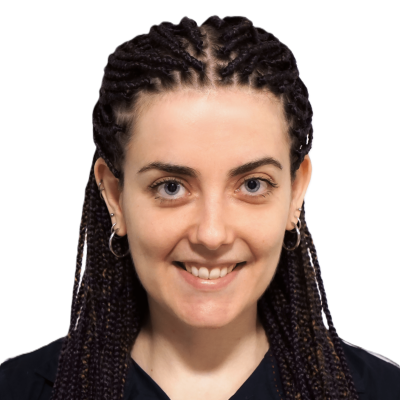3 questions for...

Prof. Dr. rer. nat. Kerstin Lenhof
Group leader
Kerstin Lenhof was appointed as a professor at the Department of Medical Bioinformatics at University Medical Center Göttingen (UMG) in October 2025 and has since been affiliated with the CAIMed initiative. Her research is located at the intersection of various disciplines, including medicine (particularly oncology), biology, computer science (with a focus on bioinformatics and machine learning), and ethics. At the core of her work is the development of trustworthy machine learning algorithms for oncological applications. She places particular emphasis on the reliability, robustness, and interpretability of machine learning models, as well as on ethical considerations and human factors in clinical deployment. For her, ensuring the lawful, ethical, and robust implementation of these systems is not merely a scientific challenge but a societal responsibility.
1.
You work with machine learning methods for personalised cancer therapy. How will patients benefit from this in the future?
AI has the potential to make cancer therapy more personalized and precise. By analyzing large, heterogeneous datasets AI can detect patterns that would otherwise go unnoticed, guiding better treatment decisions. Moreover, interpretable AI also helps generate new hypotheses that can be experimentally validated, contributing to a deeper medical understanding. Ideally, we’re not just building better models, we’re laying the basis for more informed and effective health care decisions.
2.
Your research is at the intersection of computer science, biology and medicine. How do you manage to bridge the gap between these disciplines?
That’s a tricky question. For me, the key lies in a sincere curiosity and a deep interest in each individual discipline. I often act as a mediator, i.e., I translate between academic “dialects” and foster shared understanding. This involves not just language, but aligning perspectives and priorities to facilitate collaboration across disciplines.
3.
When you think about the future of medical AI, what makes you optimistic, and what makes you cautious?
AI in medicine offers a variety of opportunities for more personalized and data-driven decisions because of its ability to process vast datasets quickly. However, widespread use must be accompanied by strong safeguards: clear regulations to protect sensitive health data, ensure transparent and fair decisions, and define accountability. This will require substantial effort, not just from industry, but especially from academia, which often faces resource constraints despite its vital role in shaping ethical AI.

